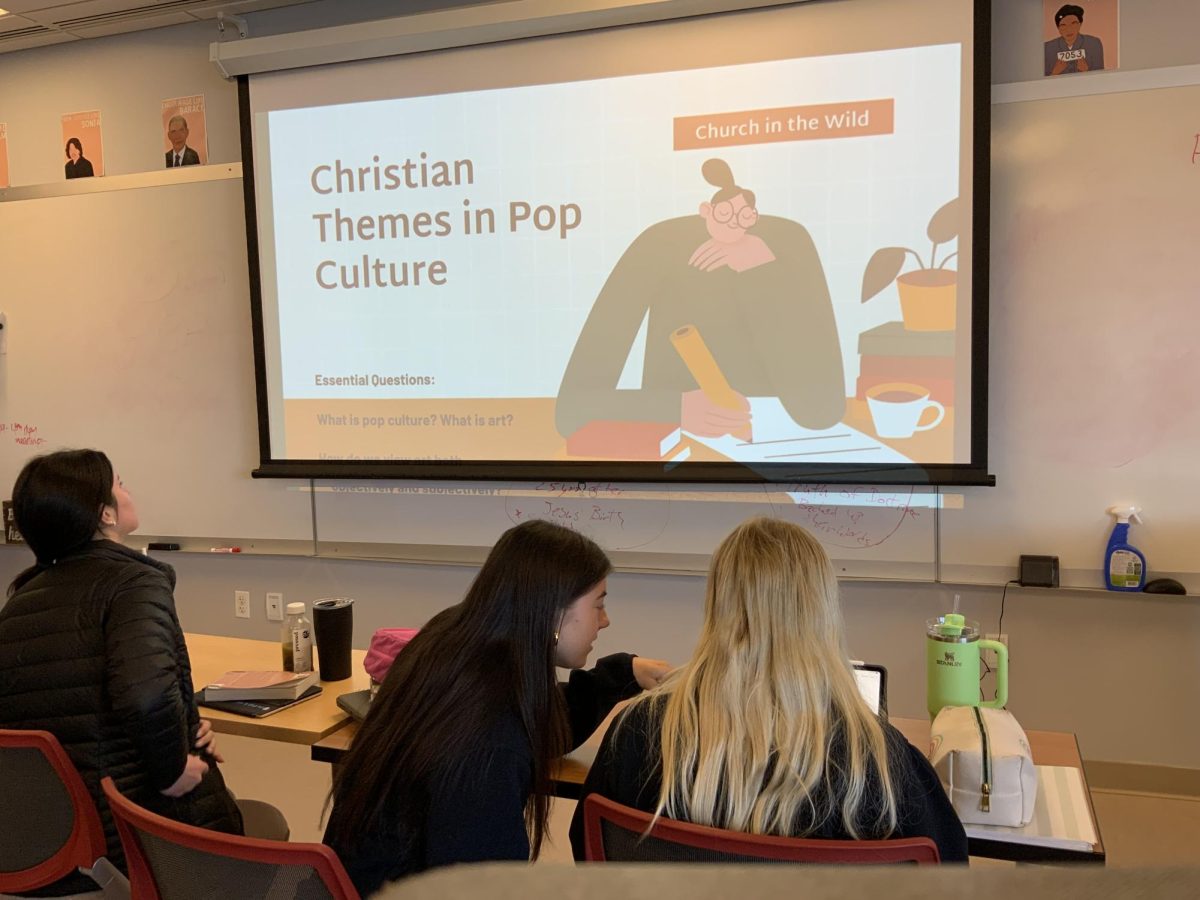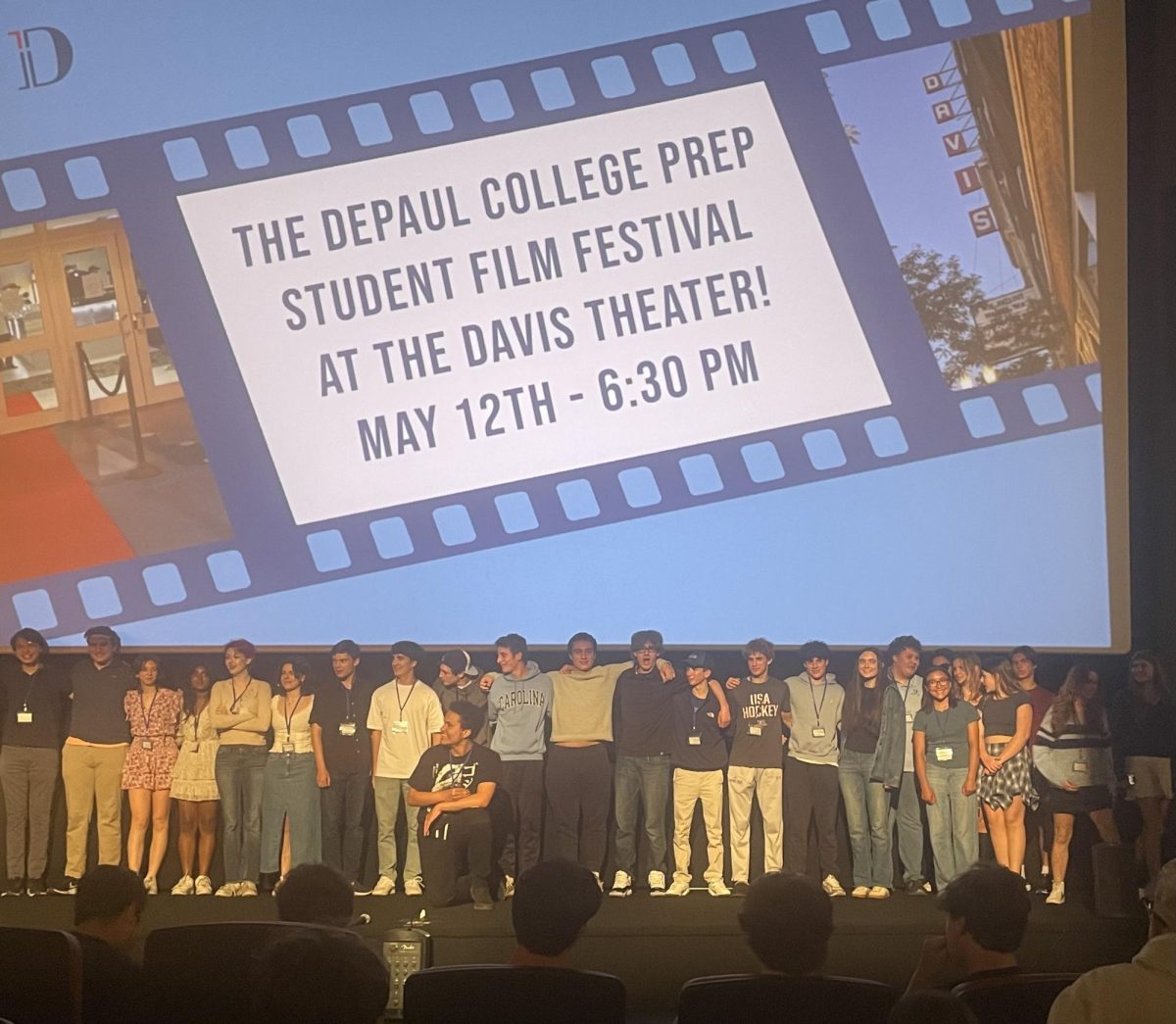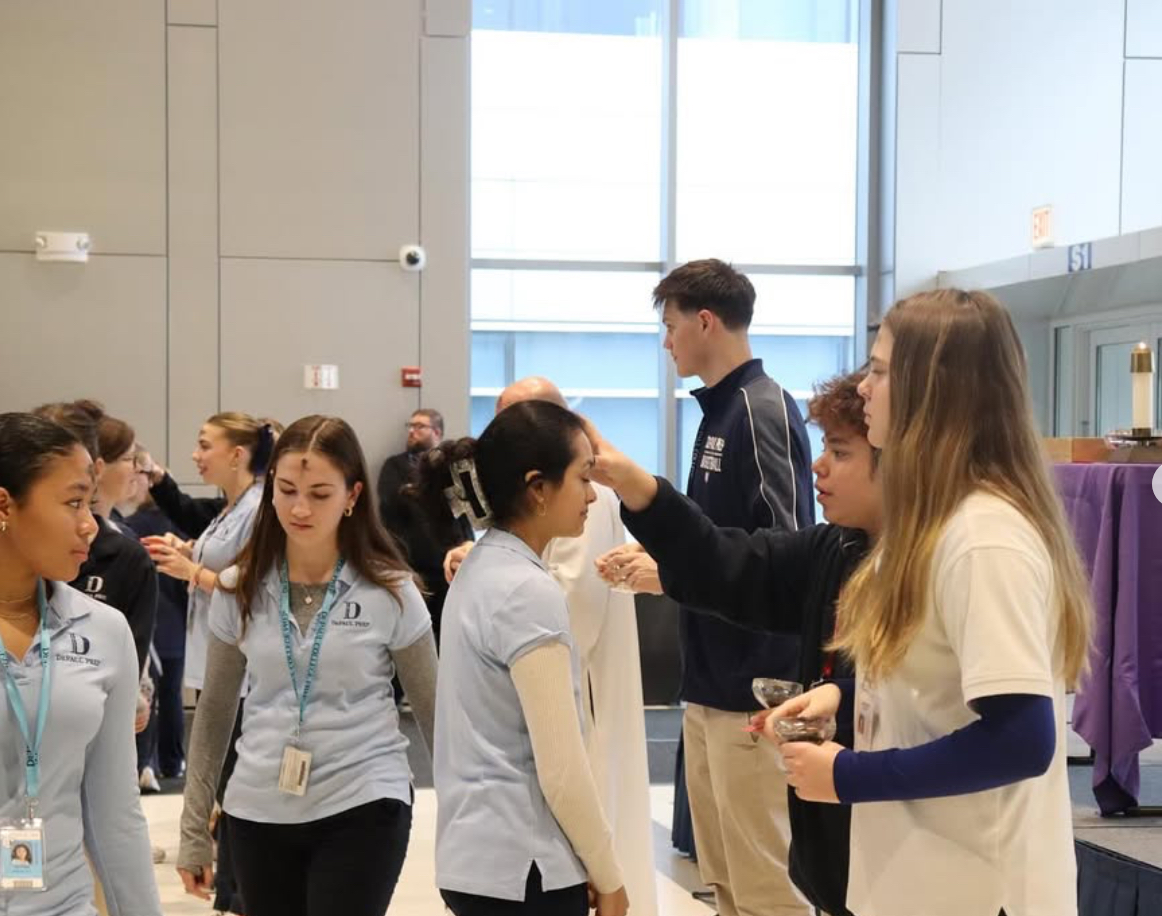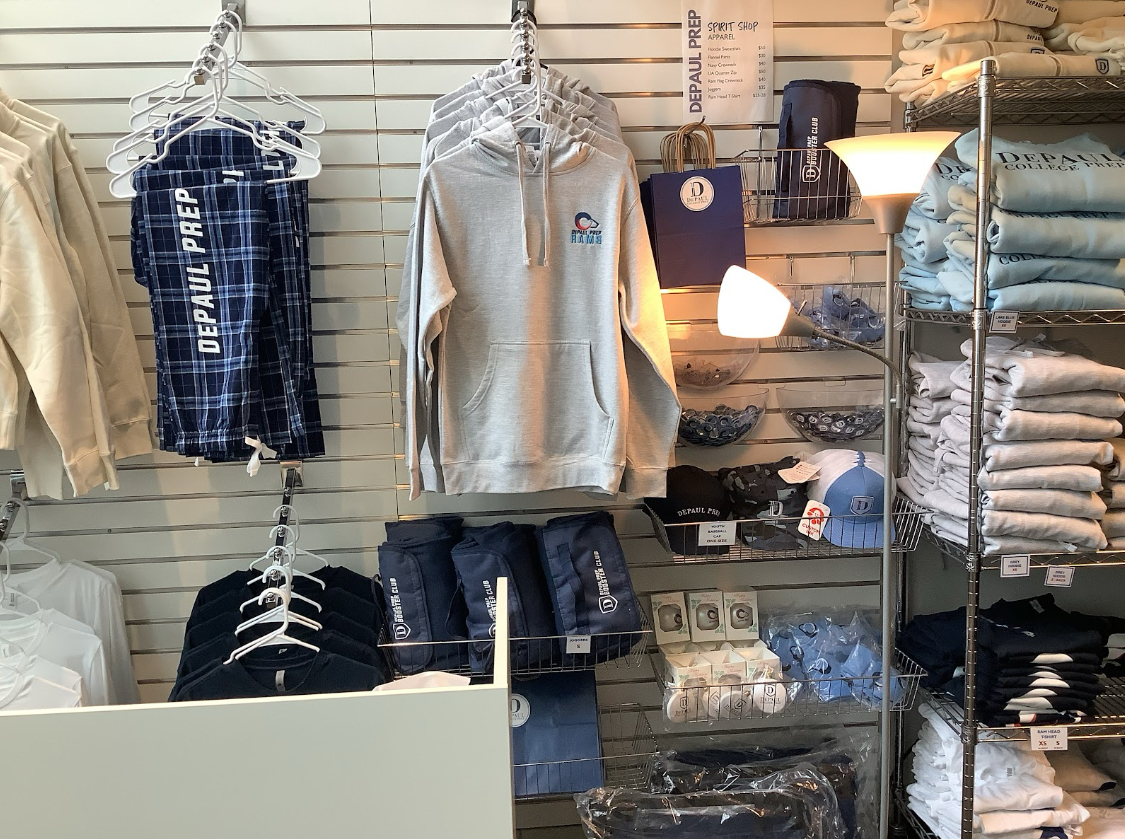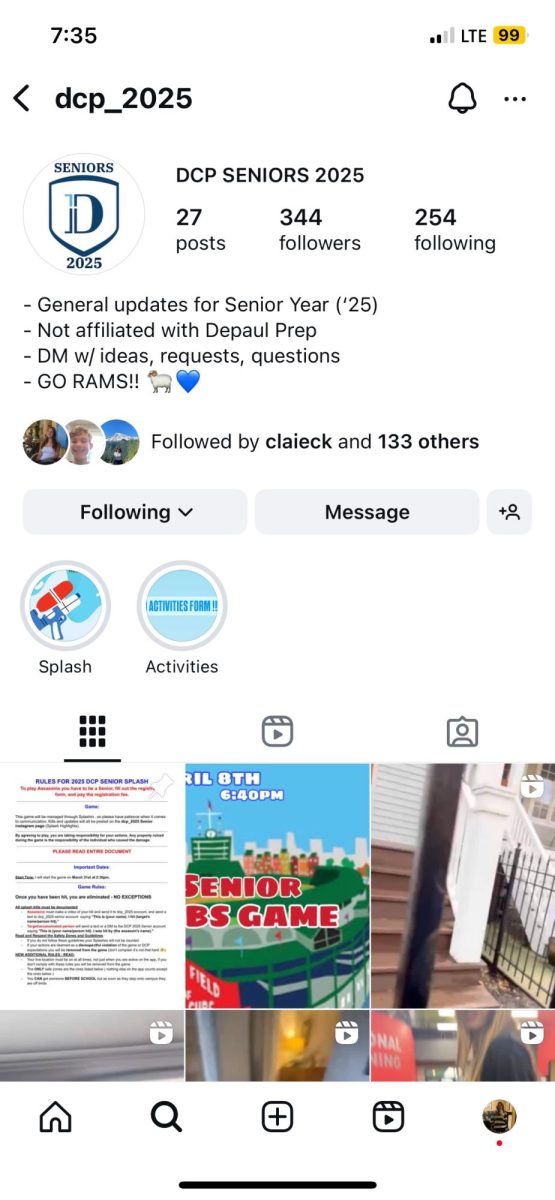This year, DePaul Prep added two new religion classes available for seniors.
Head of the Theology Department, Bernadette Raspante, explained the process to make these new classes a reality. The department aimed to create a space where students could “see that their faith life is more than just beyond the walls here.” They also strived to harness multiple beliefs as well as freedom for students to make their own decisions throughout their faith journey and “how that will play into their future.”
Raspante teaches Church in the Wild. The class was produced to show students that the themes of the bible are prevalent anywhere they look; specifically, throughout the media. Many kids decided to add the class to their schedule to watch movies, but it’s more than that. Raspante explains that the class is intended for “students to find more ways to connect to their faith”.
Learning about the media comes with many controversial topics. The class provides an open space to discuss opinions and relate with classmates over contentious and impactful pop culture moments. Senior Sinead Nash elaborates that during the class presentations, she “got to learn more about the students and their perspectives.”
On the other hand, Origins and Beliefs combine and explore the commonly separated views of the beginning of life from a Catholic-based and scientific perspective.
With 65 students, Origins and Beliefs is taught by Sara Conneely. She targets the learning towards the integration of two disciplines that ask different questions. Conneely combines “investigation and researching on peer work” to directly show that it is possible for “faith and science work together.”
A senior in Conneely’s class, Brigid Clarke says, “The idea of tackling two things that are normally seen as contradictory is pretty interesting to learn about.”
With such great feedback regarding the classes, Raspante is expanding the choices for next year’s seniors with the incorporation of Voices of the Marginalized.
Raspante says that the class will, “take stories and narratives of people who have maybe not been super public in our curriculum of Catholicism and the American church.”
Although the classes are all unique in their ways, both shine a light on helping “students to find more ways to connect with faith,” Raspante says.


